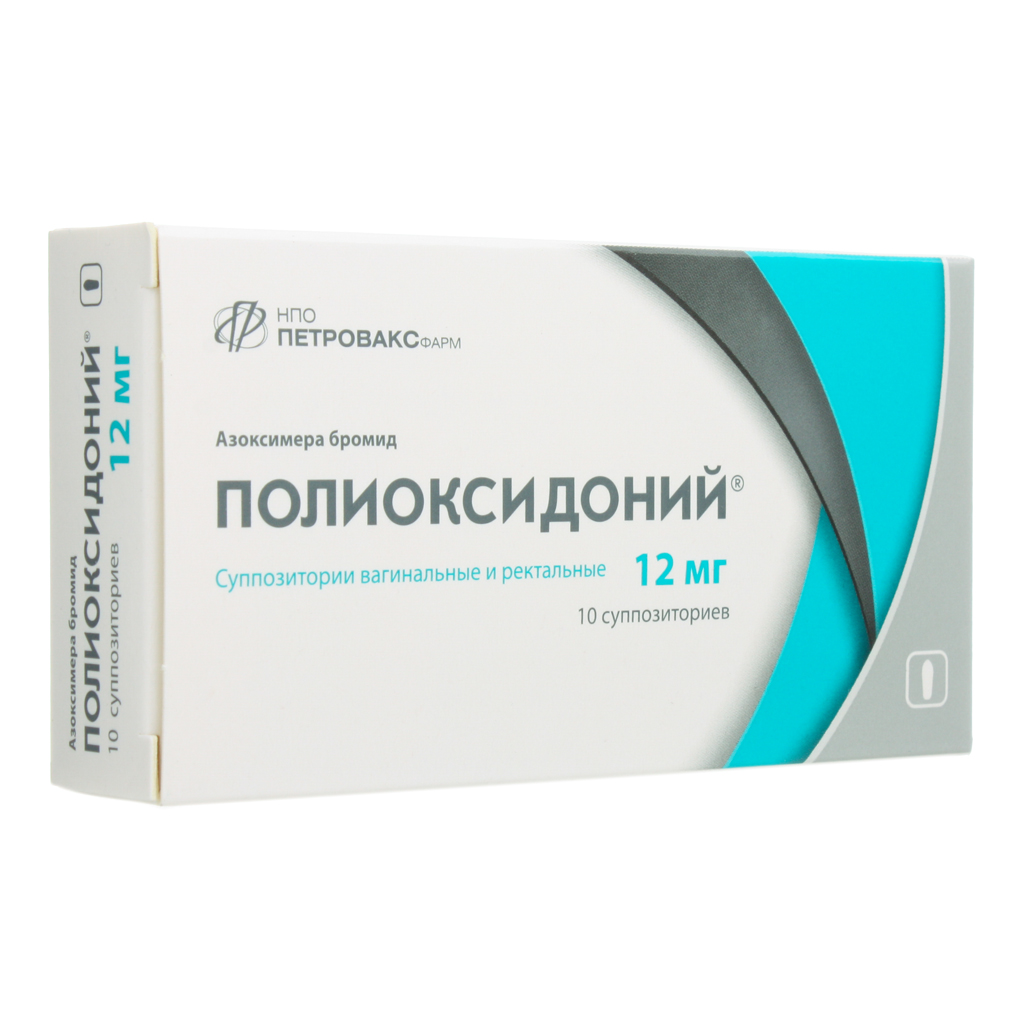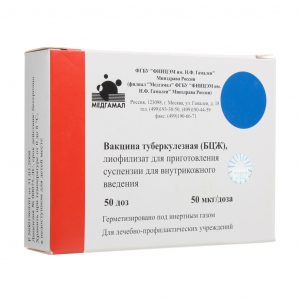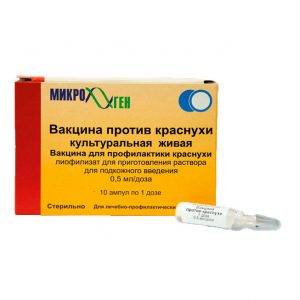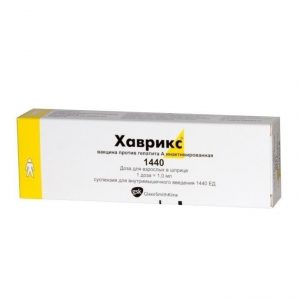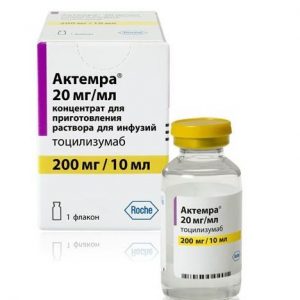Description
Latin name
Bovgyaluronidase azo oximer (bovhyaluronidasum azoximerum)
Release form
vaginal and rectal suppositories.
Packing
5 pcs – blister packs (2) – packs of cardboard.
Pharmacological action of
Azoximer bromide has a complex immunomodulating, detoxifying, antioxidant, moderate anti-inflammatory effect.
The basis of the mechanism of the immunomodulating action of azoximer bromide is a direct effect on phagocytic cells and natural killers, as well as stimulation of antibody formation, synthesis of interferon-alpha and interferon-gamma.
The detoxification and antioxidant properties of azoximer bromide are largely determined by the structure and high molecular nature of the drug.
Azoximer bromide increases the body’s resistance to localized and generalized infections of bacterial, fungal and viral etiology. Restores immunity in secondary immunodeficiency conditions caused by various infections, injuries, complications after surgery, burns, autoimmune diseases, malignant neoplasms, the use of chemotherapeutic agents, cytostatics, steroid hormones.
A characteristic feature of azoximer bromide in topical (intranasal, sublingual) use is the ability to activate factors of the body’s early defense against infection: the drug stimulates the bactericidal properties of neutrophils, macrophages, enhances their ability to absorb bacteria, increases the bactericidal properties of saliva and the secretion of the upper respiratory tract.
Azoximer bromide blocks soluble toxic substances and microparticles, has the ability to remove toxins, salts of heavy metals from the body, inhibits lipid peroxidation, as through the capture of free radicals, and by eliminating catalytically active Fe2 + ions.
Azoximer bromide reduces the inflammatory response by normalizing the synthesis of pro- and anti-inflammatory cytokines.
Azoximera bromide is well tolerated, does not have mitogenic, polyclonal activity, antigenic properties, does not have allergenic, mutagenic, embryotoxic, teratogenic and carcinogenic effects. Azoximer bromide is odorless and tasteless, has no local irritant effect when applied to the mucous membranes of the nose and oropharynx.
Indications
In adults and children over 6 years of age – treatment and prevention of infectious and inflammatory diseases (viral, bacterial and fungal etiology), in the stage of exacerbation and remission.
For treatment (in complex therapy):
acute and exacerbation of chronic recurrent infectious and inflammatory diseases of various localization, bacterial, viral and fungal etiology
inflammatory diseases of the urogenital tract (urethritis, cystitis, pyelonephritis, prostatitis, salpingo-oophoritis, colitis, endomy cervicosis, bacterial vaginosis)
various forms of pulmonary tuberculosis
allergic diseases (including hay fever, bronchial asthma, atopic dermatitis), complicated by recurrent bacterial fungal and viral infections of
rheumatoid arthritis, complicated by recurrent bacterial, fungal and viral infections, with prolonged use of
immunosuppressants to activate regenerative processes (fractures, burns, trophic ulcers)
in oncology during and after chemo-and radiation therapy – decrease , nephro- and hepatotoxic effects of drugs.
For prophylaxis (monotherapy):
recurrent herpetic infection of the urogenital tract
exacerbation of chronic foci of infection
influenza and other acute respiratory infections in the pre-epidemic and epidemic period in immunocompromised individuals
secondary exposure to immunodeficiencies.
Contraindications
increased individual sensitivity
acute renal failure
pregnancy (no clinical experience)
lactation period
children under 6 years of age.
Precautions
Chronic renal failure (used no more than 2 times a week).
Recommendations for use
Use the drug only according to the indications, the method of use and at the doses indicated in the instructions. If there is no improvement after treatment, or the symptoms worsen, or new symptoms appear, you should consult your doctor.
once a day daily, every other day or 2 times a week.
If necessary, repeated courses of therapy are possible after 3-4 months. With a repeated prescription of the drug, its effectiveness does not decrease.
Recommended regimens for the use of the drug
For treatment in adults:
– rectally, 1 supp. 1 time per day after intestinal cleansing
– vaginally for gynecological diseases, 1 supp. 1 time per day (at night) is inserted into the vagina in the supine position.
Dosage and administration for adults
– for chronic infectious and inflammatory diseases in the acute stage – suppositories 12 mg once daily for 3 days, then every other day. The course of treatment is 10 supp.
– for acute infectious processes and for activation of regenerative processes (fractures, burns, trophic ulcers) – suppositories 12 mg once a day daily. The course of treatment is 10 supp.
– in case of gynecological diseases – suppositories 12 mg once a day daily for 3 days, then every other day. The course of treatment is 10 supp.
– with exacerbation of urological diseases (urethritis, pyelonephritis, cystitis, prostatitis) – suppositories 12 mg once a day daily. The course of treatment is 10 supp.
– for pulmonary tuberculosis – suppositories 12 mg once a day daily for 3 days, then every other day. The course of treatment is 20 supp. Further, it is possible to use maintenance therapy – suppositories 6 mg 2 times a week, with a course of up to 2-3 months
– in the complex treatment of cancer with chemotherapy and radiation therapy – suppositories 12 mg daily 2-3 days before the start of a course of chemo- or radiation therapy. Then – 12 mg 2 times a week, course up to 20 supp.
– for allergic diseases, complicated by infectious syndrome, suppositories 12 mg 1 time per day daily. The course of treatment is 10 supp.
– with rheumatoid arthritis – suppositories 12 mg every other day. The course of treatment is 10 supp.
For prevention (monotherapy):
– exacerbations of chronic foci of infection – 10 supp.
– influenza and ARVI – suppositories 12 mg 1 time per day. Course – 10 supp.
– secondary immunodeficiencies resulting from aging – suppositories 12 mg 2 times a week. The course is 10 supp., 2-3 times a year.
For the treatment of children and adolescents from 6 to 18 years:
For children and adolescents from 6 to 18 years, suppositories are administered only rectally, 1 suppository. 6 mg 1 time per day after bowel cleansing:
– in case of chronic infectious and inflammatory diseases in the acute stage – suppositories 6 mg 1 time per day daily for 3 days, then in a day. The course of treatment is 10 supp.
– in acute infectious processes and for activation of regenerative processes (fractures, burns, trophic ulcers) – suppositories 6 mg once a day daily. The course of treatment is 10 supp.
– with exacerbation of urological diseases (urethritis, pyelonephritis, cystitis, prostatitis) – suppositories 6 mg once a day daily. The course of treatment is 10 supp.
– for pulmonary tuberculosis – suppositories 6 mg once a day daily for 3 days, then every other day. The course of treatment is 20 supp. Further, it is possible to use maintenance therapy – suppositories 6 mg 2 times a week, with a course of up to 2-3 months
– in the complex treatment of oncological diseases during chemotherapy and radiation therapy – suppositories 6 mg daily 2-3 days before the start of a course of chemo- or radiation therapy. Then – 6 mg 2 times a week, course up to 20 supp.
– for allergic diseases complicated by an infectious syndrome, – suppositories 6 mg once a day daily. The course of treatment is 10 supp.
– with rheumatoid arthritis – suppositories 6 mg every other day. The course of treatment is 10 supp.
For prevention (monotherapy):
– exacerbations of chronic foci of infection, recurrent herpetic infection of the urogenital tract – suppositories 6 mg every other day. Course – 10 supp.
– influenza and ARVI – suppositories 6 mg 1 time per day. Course – 10 supp.
For patients receiving long-term immunosuppressive therapy, cancer, exposed, and acquired immune system defect (HIV), maintenance therapy with Polyoxidonium ® is indicated for 2 ² 3 months to 1 year (adults – 12 mg, children over 6 years old – 6 mg 1-2 times a week).
Pregnancy and lactation
Pregnancy and lactation are contraindicated (there is no clinical experience with this).
Special instructions
If an allergic reaction develops, discontinue the use of Polyoxidonium ® and consult a doctor.
If you need to stop taking the drug Polyoxidonium ® cancellation can be done immediately, without gradually reducing the dose.
If you miss the introduction of the next dose of the drug, its subsequent use should be carried out in the usual manner, as indicated in this manual or recommended by a doctor. The patient should not administer a double dose in order to compensate for missed doses.
Do not use the product if there are visual signs of its unsuitability (packaging defect)
Composition
Composition per suppository:
Active ingredient:
azo oximer bromide – 12 mg
Excipients (for a dosage of 12 mg):
mannitol – 3.6 mg
povidone K17 – 2.4 mg as
oil
Side effects
Very rarely – local reactions in the form of redness, swelling, itching of the perianal zone, vaginal itching (due to individual sensitivity to the components of the drug).
Drug Interaction
No drug interaction established. The use of Polyoxidonium ® with many drugs is possible, including compatible with antibiotics, antiviral, antifungal and antihistamines, bronchodilators, ACS, cytostatics and -Adrenomimetics.
Azoximer bromide does not inhibit CYP1A2, CYP2C9, CYP2C19, CYP2D6 cytochrome P450 isoenzymes, so the drug is compatible with antibiotics, antiviral, antifungal and antihistamines, GCS and cytostatics.
If the patient is taking the above or other medicines (including over the counter), consult a doctor before taking Polyoxidonium ®.
overdose
The overdose of Polioxidonium ® is unknown.
Storage conditions
In a dry, dark place at a temperature of 2 to 15 ° C. Keep away from children.
Expiration
2 years. Do not use the drug after the expiry date stated on the package.
Active ee substances
Azoksymera bromide
dosage form
dosage form
rectal suppositories
